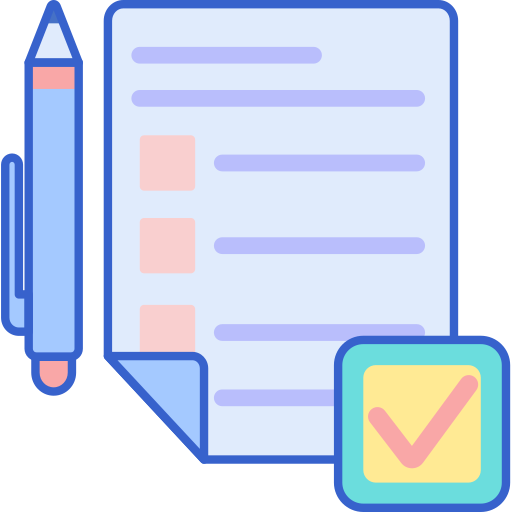- Home
- All Courses
- Software Testing & Selenium
- Selenium Automation Testing
- Live Projects on Testing
- Live Projects on Selenium
- DevOps with AWS & Azure
- Amazon Web Services
- React JS
- MERN Stack
- Java Full Stack
- UI / WEB Development
- Python Full Stack
- Django with Live Project
- New Batches
- Placements
- Student Reviews
- Students Zone
- Contact Us
- Enroll Now
Data Science Training in Hyderabad
This course structure provides a step-by-step introduction to data analysis, Python, machine learning, deep learning and AI without overwhelming students with technical details. It focuses on practical skills and real-world applications to make the content accessible to those without a technical background.
Course Duration
120 Days
Training Options
Classroom / Online
Rating
Why Should You Take Ai Data Science Course?
Ai Data Science is in demand.
Data Science Ai & ML is rated as one of the happiest professions.
Data Science Engineer has a great career path.
Instructor-led Ai Data Science Live Classes
| Course | Date | Timings | Duration | Trainer | Register for Demo |
About Course
In this course you will get an introduction to the main tools and ideas which are required for Data Scientist/Business Analyst/Data Analyst/Analytics Manager/Actuarial Scientist/Business Analytic Practitioners. The course gives an overview of the data, questions, and tools that data analysts and data scientists work with. The course is a combination of various data science concepts such as machine learning, visualization, data mining, programming, data mugging, etc. There are three components to this course. The first is a conceptual introduction to the ideas behind turning data into actionable knowledge. The second is manual calculations will be shown on how formulae’s are used behind the logics. The third is a practical introduction to the tools that will be used in the program like R/Python Programming and EXCEL.
About Trainer
- 10+ years of Real-time Experience in Data Science Engineer
- Expert in Ai & Ml Language etc.,
- Experience in blend of Real-time Projects & Training’s
Training Options
CLASSROOM TRAINING
INR 20,000/-
- Effective Training by Industry Experts
- High-End Training Infrastructure
- Limited Students per batch
- Personalized & Focused Learning methodology
- Study Materials, Videos and Tests through LMS App
- Assignments assessment and assurance
- Certification , Resume & Placement Support
ONLINE TRAINING
INR 20,000/-
- Smartboard & Live Video Streaming Environment
- Effective Training by Industry Experts
- Limited Students per batch
- Assignments assessment and assurance
- Study Materials, Videos and Tests through LMS App
- Earn a Global Certificate
- Resume & Placement Support
Video Based Learning
INR 20,000/-
- High Quality Training Videos by Industry Experts
- Learn at your convenient time
- Videos Access
- Free Upgrade & Support
- Study Material and Tests access through LMS
- Earn a Global Certificate
- Resume & Placement Support
Skills Covered












Curriculum
Introduction to Programming and Python Basics
- What is programming? Introduction to Python.
- Installing Python and an Integrated Development Environment (IDE).
Python Fundamentals
- Writing and running your first Python program (Hello World!).
- Understanding variables and data types. integers, floating-point numbers, strings.
Input and Output
- Basic functions. type(), str(), int(), float(), and round()
- Basic input and output using `input()` and `print()`.
Decision Making and Loops
- Conditional statements. `if`, `elif`, and `else`.
- Introduction to Boolean logic.
- Looping concepts. `for` and `while` loops.
More on Loops and Pattern Printing
- Using loops for repetitive tasks.
- Advanced looping patterns
- Pattern printing exercises
Lists and Functions
- Working with lists. creating, indexing, slicing, and modifying.
- Introduction to functions. defining and calling functions.
- Passing arguments and returning values from functions.
Advanced Data Types
- More about strings. string methods and formatting.
- Introducing tuples and dictionaries.
- Sets and their applications.
File Handling and Exceptions
- Reading and writing files in Python.
- Handling exceptions using `try` and `except` blocks.
- Using `with` statements for better file management.
Libraries and Modules
- Introduction to Python libraries and modules.
- Using built-in modules (e.g., `math`, `random`, `datetime`).
- Exploring external libraries using `pip`.
Getting Started with Data Analysis
- Introduction to Data and Its Importance
- Overview of Data Analysis and Its Applications
- Elements of Python for Data Analysis
- Understanding Data Sources and Types
- Data Cleaning and Data Preparation
Understanding Data Tools and Libraries
- Introduction to Data Analysis Tools (Excel, Google Sheets)
- Introduction to Data Visualization
- Overview of Python Libraries for Data Analysis
- Data Analysis Using Excel
- Visualizing Data with Charts and Graphs
Exploring Data with Pandas
- Introduction to Pandas and Its Importance
- Reading and Interpreting Data Tables
- Basic Data Cleaning Techniques
- Data Filtering and Sorting
- Creating Simple Data Visualizations
Introduction to Descriptive Statistics
- Overview of Descriptive Statistics
- Understanding Measures of Central Tendency
- Exploring Measures of Dispersion
- Visualizing Data Distributions
- Practical Data Analysis Tips and Tricks
Introduction to Python for Data Analysis
- Introduction to Python for Data Analysis
- Setting Up Your Python Environment
- Basic Data Structures in Python (Lists, Dictionaries)
- Reading and Writing Data Files (CSV, Excel) with Python
- Practical Data Cleaning with Python
Data Analysis with Pandas
- Introduction to Pandas and Its Role in Data Analysis
- Reading and Displaying Data with Pandas
- Data Cleaning and Preparation with Pandas
- Data Filtering and Sorting with Pandas
- Visualizing Data Using Pandas
Introduction to Data Visualization
- Understanding Data Visualization Principles
- Basic Data Visualization with Matplotlib
- Creating Charts and Graphs in Python
- Customizing Visualizations and Adding Labels
- Practical Data Visualization Projects
Exploring Descriptive and Inferential Statistics
- Descriptive Statistics with Python
- Measures of Central Tendency and Variability
- Introduction to Probability and Inferential Statistics
- Hypothesis Testing Concepts
- Real-World Data Analysis Case Studies
Understanding Machine Learning
- Introduction to Machine Learning and Its Applications
- Types of Machine Learning (Supervised, Unsupervised)
- Introduction to Scikit-Learn
- Building a Simple Machine Learning Model
- Real-World Machine Learning Use Cases
Machine Learning Fundamentals
- Introduction to Data and Data Preprocessing
- Data Exploration and Visualization
- Data Cleaning and Handling Missing Values
- Feature Engineering and Selection
- Model Evaluation Metrics
Classification
- Introduction to Classification Problems
- Logistic Regression
- Decision Trees and Random Forests
- Support Vector Machines
- k-Nearest Neighbors (k-NN)
Regression
- Introduction to Regression Problems
- Linear Regression
- Polynomial Regression
- Ridge and Lasso Regression
- Building Regression Models
Clustering
- Introduction to Clustering
- K-Means Clustering
- Hierarchical Clustering
- DBSCAN and Other Clustering Methods
- Evaluating Clustering Performance
Dimensionality Reduction
- Dimensionality Reduction Overview
- Principal Component Analysis (PCA)
- t-Distributed Stochastic Neighbor Embedding (t-SNE)
- Implementing Dimensionality Reduction
NLP Basics
- Introduction to Natural Language Processing
- Text Preprocessing
- Text Classification
- Named Entity Recognition (NER)
- Sentiment Analysis
Advanced NLP Topics
- Word Embeddings (Word2Vec, GloVe)
- Sequence-to-Sequence Models
- Chatbots and Conversational AI
- Text Generation with Recurrent Neural Networks (RNNs)
- NLP Applications and Case Studies
Image Basics
- Introduction to Computer Vision
- Image Preprocessing and Enhancement
- Image Segmentation
- Object Detection
- Image Classification
Advanced Topics
- Convolutional Neural Networks (CNNs)
- Transfer Learning in Computer Vision
- Face Recognition
- Image Generation with Generative Adversarial Networks (GANs)
- Computer Vision Applications
Reinforcement Learning Basics
- Introduction to Reinforcement Learning
- Markov Decision Processes (MDPs)
- Q-Learning
- Deep Q-Networks (DQNs)
- Policy Gradient Methods
AI Applications
- Robotics and Autonomous Systems
- Game Playing and AlphaZero
- Autonomous Vehicles
- AI in Healthcare
- Ethical Considerations in AI
Deep Learning Fundamentals
- Introduction to Deep Learning
- Neural Networks and Backpropagation
- Activation Functions and Optimization
- Regularization Techniques
- Implementing Neural Networks
Advanced Deep Learning Topics
- Convolutional Neural Networks (CNNs)
- Recurrent Neural Networks (RNNs)
- Generative Models (GANs and VAEs)
- Transfer Learning and Fine-Tuning
- Deep Learning Applications
Ethical Considerations
- AI Bias and Fairness
- Privacy and Data Security
- AI and Human Labor
- AI Regulations and Policies
- Responsible AI Development
Future Trends
- Explainable AI (XAI)
- Quantum Computing and AI
- AI in Space Exploration
- AI for Climate Change and Sustainability
- Future Frontiers of AI
- Exercises: Weekly practical coding exercises to reinforce learning.
- Activities: Interactive activities and discussions to engage with course material.
- Practice Programs: Weekly practice programming tasks to apply knowledge.
- Assignments: Regular assignments to assess understanding and skills.
- Mini-Projects: 4 Mini-projects to apply concepts and demonstrate proficiency.
Like the curriculum? Enroll Now
Structure your learning and get a certificate to prove it.

Data Science (Ai & ML)
QEdge Tech Data Science Professional Certificate Holders work at 100s of companies like




Reviews



QEdge Training Features

Theory

Project Work

Assignments

Certification

Resume Preparation

Interview Preparation

Resume Marketing

Placement Support
Frequently Asked Questions
Daily 1.5 hour theory + 1.5 hour practical session.
Monday to Saturday Sessions.
Yes, you are going to work on real-time projects during learning to gain real-time projects experience.
After completion of training, you will receive a certificate of completion, which you can share with your friends, relatives, co-workers and potential employers.
Yes, you’ll be able to access your enrolled course materials through our Learning Management System. Practical Assignments, Day-to-Day Class videos and readings you can access through our LMS App.
Be Future Ready. Enroll Now
Structure your learning and get a certificate to prove it.

QEdge Technologies
QEdge Technologies was established by team of enthusiastic industry professionals from various organizations with the vision of providing IT training to fill the gap between industry requirement and learning.
Follow us!
Contact Us
Full Stack Developer Trainings
- Java Full Stack Training
- Python Fullstack Training
- Django with Live Project
- UI / WEB Development
- React JS
- MERN Stack.
Software QA Testing Trainings
- Software Testing Training Online
- QA Testing Training
- Selenium Training
- Manual Testing Training
- Selenium Project Testing Training
- Manual Project Testing Training
- Appium Mobile Application Testing Training
- JMeter Performance Testing Training
- LoadRunner Performance Testing Training
- Database & ETL Testing Training
- Copyright © 2021 QEdge Technologies
- Terms & Conditions
- Legal & Privacy





